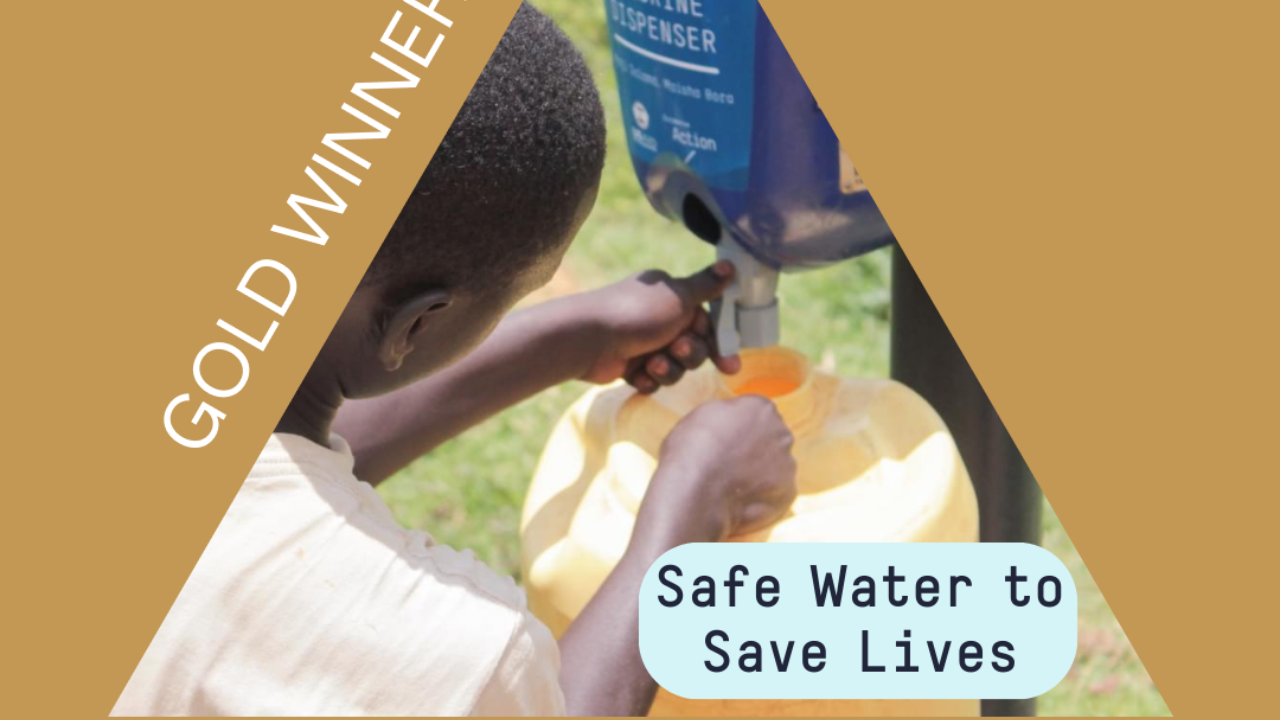With each passing day, the realities of the COVID-19 pandemic become clearer. As the disease bends health systems in the US, UK, and Europe to the breaking point, organizations like ours are keenly focused on the looming threat that this pandemic presents in low- and middle-income countries. At Evidence Action we are seeking to leverage our existing resources and relationships to support governments and communities in their response to COVID-19.
In Africa, though relatively fewer cases have been reported to date, time is of the essence to mitigate the devastating effect the virus could have across countries where prevention strategies such as hand-washing and social distancing can be difficult, and where treatment efforts are likely to be hampered by inadequate health infrastructure and limited human and financial resources. This means people living in extreme poverty are less able to protect themselves from falling ill and less able to access treatment if they do.
Now more than ever, safe water is essential to reduce preventable diseases in vulnerable populations, and reduce strain on already-taxed health systems that could soon be overwhelmed. Our Dispensers for Safe Water program provides sustained access to safe water for approximately 4 million people across rural Kenya, Uganda, and Malawi, where over 40% of people live below the poverty line. These remote communities have virtually no access to formal public infrastructure such as piped water, and safe water is provided through chlorine dispensers installed at local water points and serviced by our last-mile supply chain – a strong, nimble transport network that reaches over 16,500 villages, plus over 54,000 volunteer promoters nominated by their community and trained to promote dispenser use.
COVID presents a threat directly to the global poor, but also threatens major disruptions of life-saving services, including clean water. Recognizing this, our teams rapidly mobilized to ensure an uninterrupted supply of clean water in the event of transport networks shutting down – with the goal of ensuring we could sustain access to clean water for three months to rural households. We rapidly leased a fleet of small trucks (and additional motorbikes), adapting our transport network to deliver three months’ worth of our usual deliveries into two weeks. We hired temporary staff from local communities to supplement our existing field staff capacity in the rapid delivery of chlorine. And we sought to creatively adapt the model – developing and printing stickers with hygiene messages and illustrations to be placed on dispensers so that individuals can see them while fetching water, hence minimizing the need for direct contact with households. (In addition, going forward, most of our household data collection will be through phone-based surveys rather than conducted in person.) In a matter of weeks, we were able to get 400,000 liters of chlorine and an assortment of dispenser hardware parts out in the field, along with 40,000 kg of soap for volunteer promoters, and 27,000 informational stickers and flyers (one for every dispenser) to promote good hygiene practices.
With the supplies secured to safeguard clean water access to millions, we are now focused on leveraging our network to boost support to these communities in as many ways as possible. Firstly, we want to minimize the risk that our dispensers (and other communal points such as hand pumps) could unintentionally contribute to transmission because of the number of individuals who touch these points through regular use. Second, we see a huge, urgent opportunity to promote handwashing as a critical public health intervention given its importance for COVID prevention – wherein the threat of the disease could be a key motivator for behavior change (often the biggest challenge to adoption). Moreover there is some evidence that handwashing can reduce incidence of diarrhea and pneumonia in children. Experience from Ebola shows that health crises can actually lead to a spike in handwashing – if supplies are available for individuals to use. We are uniquely well-placed to undertake this given our ability to leverage our transport network and our deep reach into communities, allowing us to mobilize our promoters to deliver supplies and broaden their messaging to communities on safe water to include handwashing and other COVID-related hygiene messaging.
We have therefore commenced a multi-pronged approach to support a) frequent handwashing with soap, b) frequent disinfection of commonly used surfaces, and c) rapid recovery of dispensers in anticipation of issues such as increased breakages, chlorine shortages, and behavioral lapses. We anticipate that within a matter of weeks we may no longer be able to undertake deliveries, and are mobilizing immediately to secure supplies. Soap and disinfectant will be purchased from suppliers in capital cities, and transported to our field offices. Our field staff, in coordination with our local government public health officers and other partners, will then deliver the supplies to the promoters, who will in turn deliver them to households, while observing social distancing and other COVID-19 guidelines. We plan to:
- distribute one bar of soap per month, for up to four months, to each household in our catchment areas, reaching roughly 2 million Kenyans, 1.3 million Ugandans, and 620,000 Malawians.
- mobilize our community promoters to disinfect all frequently touched places, including dispenser valves and water pumps, in their area 3–4 times per day. When delivering supplies, our field staff will conduct a brief hygiene training session, during which they will also work with promoters to identify the frequently touched places within their area.
- conduct combined promoter and community education meetings at all water points to address safe water behavioral lapses and/or any misinformation arising from COVID-19, as well as the impact of both of these on the continued use of chlorine dispensers.
As these efforts are urgent and extraordinary, we are keenly aware that these additional interventions are not underpinned by the robust evidence of impact and cost-effectiveness that we usually demand, and as such are a departure from Evidence Action’s “business as usual”. We firmly believe, however, that faced with the scope and speed of this evolving threat, we must be flexible and urgent in the actions we take to reduce the risks in the communities in which we work.
These efforts are not only outside of our normal program scope; they are outside of our program budget. As such, we are fundraising to provide the supplies noted above. Thanks to the swift generosity of a few key funders, we have already secured significant support for these actions.
It is through concerted and collective action that we can help those in the world whose lives and livelihoods are most vulnerable in the face of COVID-19. At Evidence Action, we continue to look for ways to support the communities in which we work, and governments with whom we partner, as together we face this unprecedented global challenge. In the coming weeks, we will also share how our Deworm the World teams have stepped up to support our partner governments.



